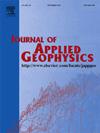基于互向约束PINN的地震初到行时模拟
IF 2.1
3区 地球科学
Q2 GEOSCIENCES, MULTIDISCIPLINARY
引用次数: 0
摘要
地震初到传播时的模拟在地震层析成像中起着至关重要的作用。初到旅行时间模拟通常依赖于求解eikonal方程。传统数值解法的精度局限于有限差分近似。近年来,物理信息神经网络(pinn)已被应用于实现这一任务。然而,传统的pinn在精确求解eikonal方程时遇到了挑战,特别是在模型显示方向缩放差异的情况下。当行驶距离较长时,这些挑战会导致相当大的旅行时间预测误差。为了提高PINN在旅行时间预测中的准确性,我们将互易原理作为约束加入到PINN训练框架中。基于互易原理,即当两点作为源端和接收端的角色互换时,两点之间的行时保持不变,我们提出将该原理应用于基于ppin的多源端-接收端行时预测。在此基础上,提出了一种动态加权机制来平衡方程损失和互向约束损失在训练过程中的贡献。这种自适应加权随训练周期的变化而动态演化,增强了训练过程的收敛性。在简单透镜速度模型、逆冲速度模型和三维速度模型上进行的实验表明,引入往复约束的PINN显著提高了走时预测的精度。本文章由计算机程序翻译,如有差异,请以英文原文为准。
Seismic first-arrival traveltime simulation based on reciprocity-constrained PINN
Simulating seismic first-arrival traveltime plays a crucial role in seismic tomography. First-arrival traveltime simulation usually relies on solving the eikonal equation. The accuracy of conventional numerical solvers is limited to a finite-difference approximation. In recent years, physics-informed neural networks (PINNs) have been applied to achieve this task. However, traditional PINNs encounter challenges in accurately solving the eikonal equation, especially in cases where the model exhibits directional scaling differences. These challenges result in substantial traveltime prediction errors when the traveling distance is long. To improve the accuracy of PINN in traveltime prediction, we incorporate the reciprocity principle as a constraint into the PINN training framework. Based on the reciprocity principle, which states that the traveltime between two points remains invariant when their roles as source and receiver are exchanged, we propose to apply this principle to multiple source–receiver pairs in PINN-based traveltime prediction. Furthermore, a dynamic weighting mechanism is proposed to balance the contributions of the eikonal equation loss and the reciprocity-constrained loss during the training process. This adaptive weighting evolves dynamically with the training epochs, enhancing the convergence of the training process. Experiments conducted on a simple lens velocity model, the Overthrust velocity model, and a 3D velocity model demonstrate that the introduction of the reciprocity-constrained PINN significantly improves the accuracy of traveltime predictions.
求助全文
通过发布文献求助,成功后即可免费获取论文全文。
去求助
来源期刊

Journal of Applied Geophysics
地学-地球科学综合
CiteScore
3.60
自引率
10.00%
发文量
274
审稿时长
4 months
期刊介绍:
The Journal of Applied Geophysics with its key objective of responding to pertinent and timely needs, places particular emphasis on methodological developments and innovative applications of geophysical techniques for addressing environmental, engineering, and hydrological problems. Related topical research in exploration geophysics and in soil and rock physics is also covered by the Journal of Applied Geophysics.
 求助内容:
求助内容: 应助结果提醒方式:
应助结果提醒方式:


